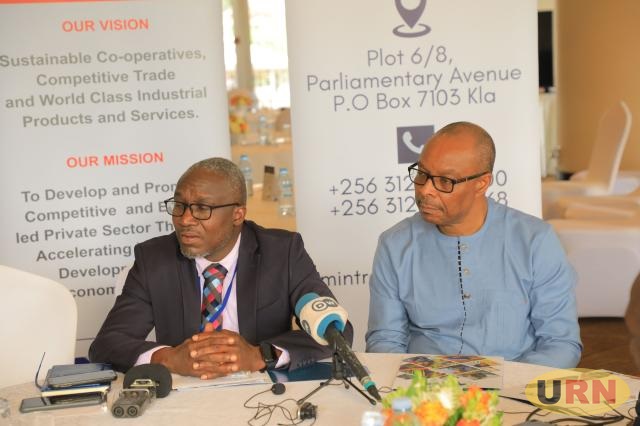
Kampala, Uganda | THE INDEPENDENT | Officials from the Ministries of Trade and Water have pinpointed the Circular Economy roadmap model as a tool that Uganda can strategically use to coordinate initiatives aimed at achieving a sustainable environment and economy.
The circular economy is a closed-loop system that efficiently uses resources, minimizes waste and promotes recycling. It addresses environmental challenges by reducing extraction, waste, and pollution while creating economic opportunities for growth, innovation, and job creation.
The approach currently being popularized differs from the prevailing linear economic model, in which products are manufactured, used up, and disposed of or discarded.
Albert Orijabu, the Assistant Commissioner for Policy and Regulation at the Ministry of Water and Environment said the Circular Economy roadmap currently being popularized provides the country with an opportunity to integrate various isolated frameworks, strategies, and policies into a cohesive and unified system.
Orijabu made the remarks during an interview that followed the launch of a process to develop a circular economy roadmap for Uganda. The event took place at the Sheraton Hotel in Kampala on Tuesday evening.
Providing insights into the model itself, Orijabu describes it as “Old wine in a new bottle,” highlighting that its foundational principles already exist and have been practised in Uganda for generations. However, he emphasizes that the model brings additional advantages, including increased funding opportunities for both the government and the private sector.
The initiative to formulate a roadmap for a circular economy is being backed by the African Development Bank and financially supported by the Africa Circular Economy Facility, a trust fund that receives contributions from multiple donors, with Finland and the Nordic Development Fund playing a key role in its funding.
Davinah Milenge, the principal program coordinator of the African Circular Economy Facility- ACEF, points out that the current national policy prioritizes environmentally friendly industries but falls short of fully embracing circularity. She highlights limitations in legislation, awareness, infrastructure, and waste management as contributing factors.
According to her, the roadmap will serve as a tool to thoroughly examine and facilitate the successful implementation of a comprehensive strategy. This, in turn, will enable the country to fully capitalize on the potential of circularity. Milenge explains that the roadmap aims to analyze the private sector, identifying opportunities for transitioning from linear to circular economic models.
“It will assess the effectiveness of related policies, regulations, and barriers in promoting a circular economy. Additionally, the roadmap will conduct a systems analysis and map out the waste produced by each sector,” Milenge added.
Uganda is one of five countries, along with Benin, Ethiopia and Cameroon, benefiting from ACEF’s multi-country national circular economy roadmap project. The circular economy roadmap will complement earlier initiatives, such as the green growth agenda that Uganda has been cultivating since as early as 2007. This commitment is explicitly outlined in the country’s Vision 2040, which, among its objectives, aims to achieve a green economy and a clean environment.
Additionally, Uganda has a Green Growth Development Strategy established in 2017, accompanied by a complementary roadmap. This strategy emphasizes five key areas of investment: agriculture, natural capital management, green cities (urban development), transport, and energy.
According to the plan, the roadmap is slated to be developed over 12 months, outlining how circular economy concepts can be integrated into almost every sector. The anticipated cost for this process is approximately 100,000 Euros (equivalent to 414,293,096 shillings).
Dr Anthony Nyong, the Director of Climate Change and Green Growth at the African Development Bank emphasized that once the roadmap is established, it will catalyze the Ugandan government, private companies, and, most importantly, small and medium-sized enterprises (SMEs) to identify and explore investment opportunities.
He further added that, at the moment, the African Development Bank (AfDB) cannot specify the exact amount it is willing to commit to support the initiative. However, there will be access to funds, and if additional resources are needed, the AfDB plans to collaborate with other facilities and financial institutions for further support.
Reports suggest that the circular economy holds substantial promise in contributing to climate action by potentially reducing greenhouse gas emissions by up to 60 per cent by the year 2050. This transition also facilitates a shift towards sustainable and clean energy sources. Moreover, the circular economy is considered a pathway for comprehensive societal transformation and innovation, unlocking significant economic potential for green growth.
The African Development Bank has highlighted that, on a continental scale, the circular economy presents an annual market opportunity of around USD 8 billion in Africa.
*******
URN
 The Independent Uganda: You get the Truth we Pay the Price
The Independent Uganda: You get the Truth we Pay the Price


